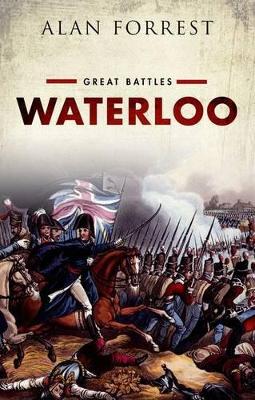Waterloo was the last battle fought by Napoleon and the one which finally ended his imperial dreams. It involved the deployment of huge armies and incurred heavy losses on both sides; for those who fought in it, Dutch and Belgians, Prussians and Hanoverians as well as British and French troops, it was a murderous struggle.
It was a battle that would be remembered very differently across Europe. In Britain it would be seen as an iconic battle whose memory would be enmeshed in British national identity across the following century. In London news of the victory unleashed an outburst of patriotic celebration and captured the imagination of the public. The Duke of Wellington would go on to build his political career on it, and towns and cities across Britain and the Empire raised statues and memorials to the victor.
But it was only in Britain that Waterloo acquired this iconic status. In Prussia and Holland its memory was muted - in Prussia overshadowed by the Battle of the Nations at Leipzig, in Holland a simple appendage to the prestige of the House of Orange. And in France it would be portrayed as the very epitome of heroic defeat. Encapsulated in the bravery of General Cambronne and the last stand of the Old Guard, remembered movingly in the lines of Stendhal and Victor Hugo, the memory of Waterloo
served to sustain the romantic legend of the Napoleonic Wars - and contributed to the growing cult of Napoleon himself.
- ISBN10 0199663254
- ISBN13 9780199663255
- Publish Date 26 March 2015
- Publish Status Active
- Publish Country GB
- Imprint Oxford University Press
- Format Hardcover
- Pages 240
- Language English
